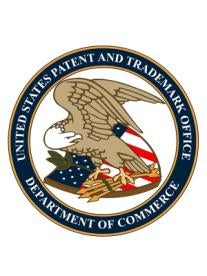“There’s nothing special about your hooch. It’s just bathwater and gin.” In the days of the Prohibition, folks did get a little creative with their alcohol concoctions. There wasn’t much choice. But, what if you had made a special blend─with a secret herbal ingredient that was anything but bathwater─so you patented it and now Bootlegger Bill has filed a heinous petition with the United States Patent and Trademark Office (“USPTO”) challenging your blend. What would you do? Probably start rounding up a team of “hooch experts” to prove the sanctity of your prized concoction, its classified hand-selected origins, and secret mixology method. But they would be prohibited. Why? Because, as the patent holder, you wouldn’t be permitted to put forth any new expert evidence in support of your patent in order to avoid a costly trial over Bootlegger Bill’s petition. At least, that was the case before the proposed rule changes. But the prohibition has been lifted! Now, the patent holder’s experts are allowed to speakeasy.
On August 19, 2015, the USPTO released a package of proposed rules affecting proceedings before the Patent Trial and Appeal Board (“PTAB”) after the grant of a patent. The proposal was offered in response to public comments submitted during 2014 relating to the America Invents Act (“AIA”) procedure which allows members of the public to challenge the validity of claims in issued patents. One of the most significant changes in the proposed rules was the ability for the patent owner to submit new testimonial evidence in support of his preliminary response to a petition challenging his patent. This change comes in response to concern that patent owners were put at a disadvantage under the current rules because they could not offer any expert testimony in response to a petitioner’s evidence to stop a full-blown patent trial. As the USPTO Director, Michelle Lee, put it: the previous rule “let petitioners’ evidence go unanswered before a trial is instituted.”
Imagine what this would do to your hooch business? You feel your blend is legit. Your ingredients are secret and your special mixing process is fully protected by patent. Bootlegger Bill comes in with a litany of experts, thousands of pages of reports and certified gin-taste tests challenging your patent and there is no testimonial evidence you can offer in response? Without the opportunity to proffer your own hooch experts, the PTAB could find Bill’s petition warrants a trial over the validity of your patent, forcing you into timely and costly patent litigation. No more says the USPTO Board. Now, patent holders can submit expert declarations and new testimonial evidence to rebut a petitioner’s evidence if they want to try and prevent a costly patent trial right at the outset.
While the benefit of this change is clear, the proposal may create some new strategic considerations for patent owners. Patent owners may decide not to submit an expert declaration in response to the petition because once an expert declaration is submitted, the testimony is locked in. In patent litigation, the PTAB essentially stands as the jury and sole fact-finder. If the patent holder waits to see what concerns, if any, the Board has with the patent, before submitting responsive testimony, it can craft its case for trial specifically with the Board’s concerns in mind. Imagine if you knew what “the jury” was going to get hung up on in trial, i.e., the fact that your special hooch was not made with individually-patented ingredients. If you file an expert report in response to the petition that admits the non-patented ingredients but focuses solely on the mixing process─let’s say the adding of minute amounts of refined syrup in small, but effective quantities, for an overall improved hooch consistency─you’re likely still going to face an all-out patent trial from the difficult position of having conceded the Board’s primary concern over the legitimacy of your patent. As with everything in litigation, it’s tough to know how many cards to lay on the table and when. However, if a single expert declaration could serve as the key piece of evidence to avoid a costly patent trial, strategy may warrant early disclosure. At the very least, as patent holders are afforded more opportunities to offer up expert testimony to defend their patents at the petition stage, we will likely see an influx in expert retention and use of expert testimony during these early proceedings.
We find these small nuances fascinating. Bathtub blends to refined gins, we find experts that can help. But we want to hear from you. What do you think of these proposed rule changes? Do you feel the previous prohibition on expert declarations was unfair? Do you see any strategic benefit for patent holders, in not filing an expert declaration in response to a petition?




 i
i

